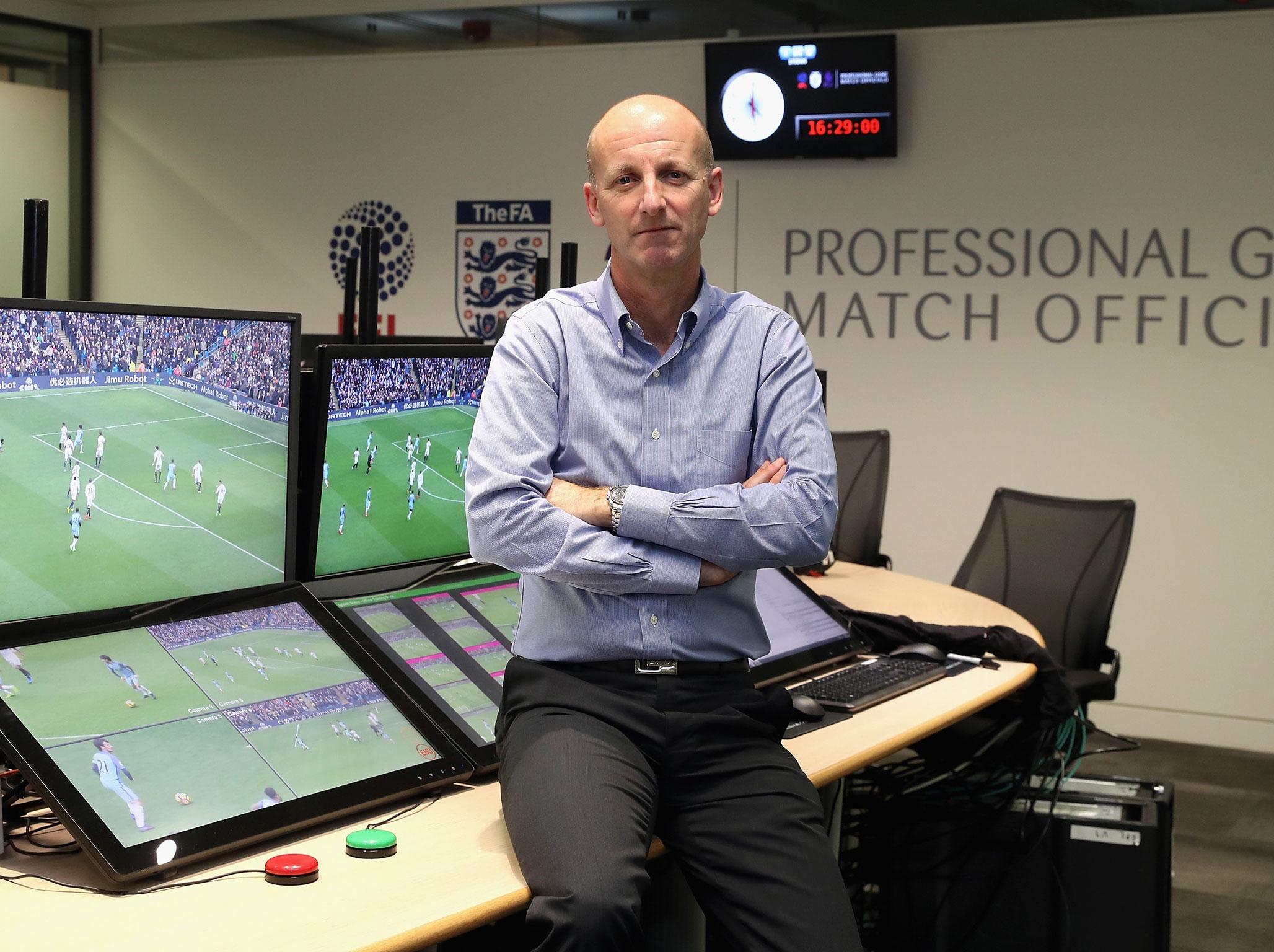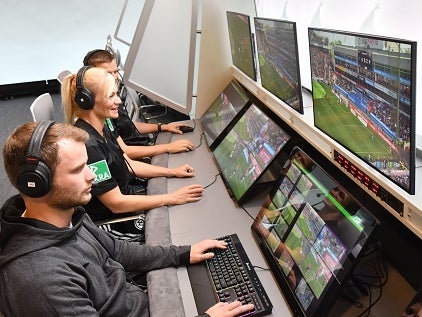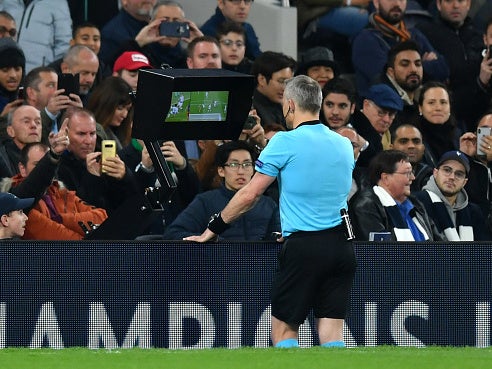Premier League: VAR debate rages on as technology poised to redefine English football
Seventeens years since England's top-flight relaunched, a new type of technology is set to change the way football is consumed

Your support helps us to tell the story
From reproductive rights to climate change to Big Tech, The Independent is on the ground when the story is developing. Whether it's investigating the financials of Elon Musk's pro-Trump PAC or producing our latest documentary, 'The A Word', which shines a light on the American women fighting for reproductive rights, we know how important it is to parse out the facts from the messaging.
At such a critical moment in US history, we need reporters on the ground. Your donation allows us to keep sending journalists to speak to both sides of the story.
The Independent is trusted by Americans across the entire political spectrum. And unlike many other quality news outlets, we choose not to lock Americans out of our reporting and analysis with paywalls. We believe quality journalism should be available to everyone, paid for by those who can afford it.
Your support makes all the difference.When the Premier League was launched in 1992 it was described by Sky as a ‘Whole new ball game’.
Now, some 17 years on, television is once again playing a key role in redefining the sport as we know it, only this time it’s the referees who are grappling with perhaps the biggest change in English football in a generation.
Video Assistant Referees (VAR) has already been used in the FA Cup, with the third-round tie between Brighton and Crystal Palace the first match to utilise technology first pioneered in the KNVB Cup in the Netherlands in 2016, with a Dutchman Mike van der Roest widely seen as the driving force behind its increasingly widespread use.
The success of those initial trials led to VAR being introduced in some of the world’s biggest leagues long before the Premier League decided to take the revolutionary step of introducing it this season.
It has been in operation in Germany’s Bundesliga since the 2017/18 season, while the MLS, La Liga, Serie A, Ligue 1 and Portugal’s Primeira Liga are all now utilising the technology.
And having been at the forefront of its introduction, Raimond van der Gouw, the former Manchester United goalkeeper who is the current goalkeeping coach at Vitesse Arnhem, believes that people have gradually been won round.
“Holland was the first to start using it and, in general, it’s viewed as a good thing," he says. "Does everyone agree? Yes and no, is probably the best answer.
“You still have some situations that lead to discussions and often it depends on the opinion of the referee who is the video assistant. The game is more clear (as a result of VAR) but there are still discussions about certain situations.
“Sometimes you have to wait (for a decision) and, of course, its slows down the game a little bit. Sometimes, though, it’s difficult to see exactly what has happened and it takes time to get the true picture. Everyone wants to be sure if a goal is offside or onside, for example. You don’t want to lose 1-0 as a result of a goal that’s offside. You have to understand that it can take time.

"There will always be those people against it because of those time delays but you need to make sure that the referee has all the information he needs and the eventual decisions is the correct one. I don’t think you can really argue with that.”
Shaka Hislop, the former West Ham and Portsmouth goalkeeper, is now an ESPN pundit across the Pond and has seen VAR in action for the past three seasons - plenty of time to form an opinion over its efficacy.
“I like it, I really like VAR, I’m a strong proponent for it,” he says. “I think it’s improving as referees get more used to it and fans get more used to it too. I think it can only get smoother. Yes, it has some kinks at the moment but they will eventually get ironed out.
“You understand that there are going to be teething problems but, from my point of view, I would rather have the right decision after four minutes than the wrong one after four seconds. Given the game and all that’s at stake now, ultimately you want the right decision.

“Those people who complain that it takes too long and breaks the natural flow of the game need to think about how they would feel if their team is punished by a wrong decision, which could be hugely costly. Sitting here as a neutral, I think it’s a good thing.”
That said, Hislop argues that introducing technology into the MLS was akin to pushing on an open door given the prominence that television and innovation has traditionally enjoyed in US sport.
“Be it in NFL or the NBA, there have always been a little more accepting of it (technology) here in the US,” he says. “To the point, that they draw parallels with other sports and look at how the strides taken elsewhere could be implemented in soccer.
“There are obviously a lot of differences in the way these games are played but they’ve been a lot more accepting over here than they have been in England or the rest of Europe in the past.”

And on the eve of its full-time introduction in the Premier League, David Elleray, the former top-flight referee who has been instrumental in VARs global roll-out, believes that the positives of the system far outweigh the negatives.
“For VAR the concern was that because so many decisions are ‘interpretation’ there would be too many interruptions and the game would lose its flow and emotion and become like American football,” he says.
“On average there is only one review every 3 matches – average time of a review is about 80 seconds so an interruption of 80 seconds for every 4.5 hours of play means that people are generally happy with VAR as it is not intruding or interrupting too much.
“When it does ‘intrude’ it has corrected major errors which has brought greater fairness.”
Whether all fans agree by the time the first round of Premier League matches are complete, only time will tell.
Join our commenting forum
Join thought-provoking conversations, follow other Independent readers and see their replies
Comments